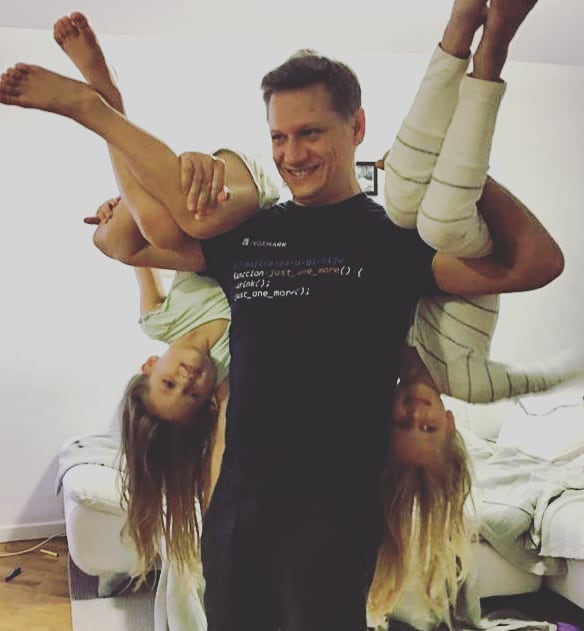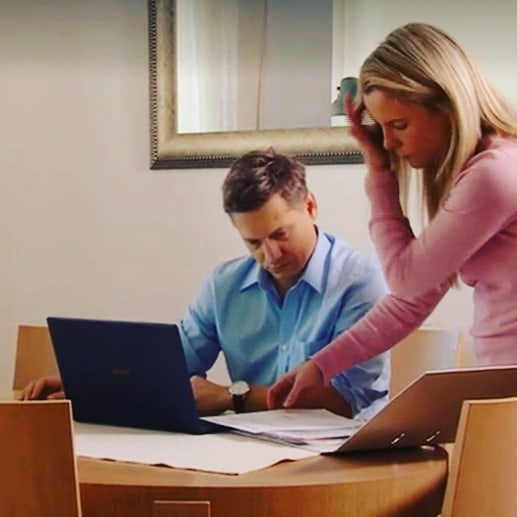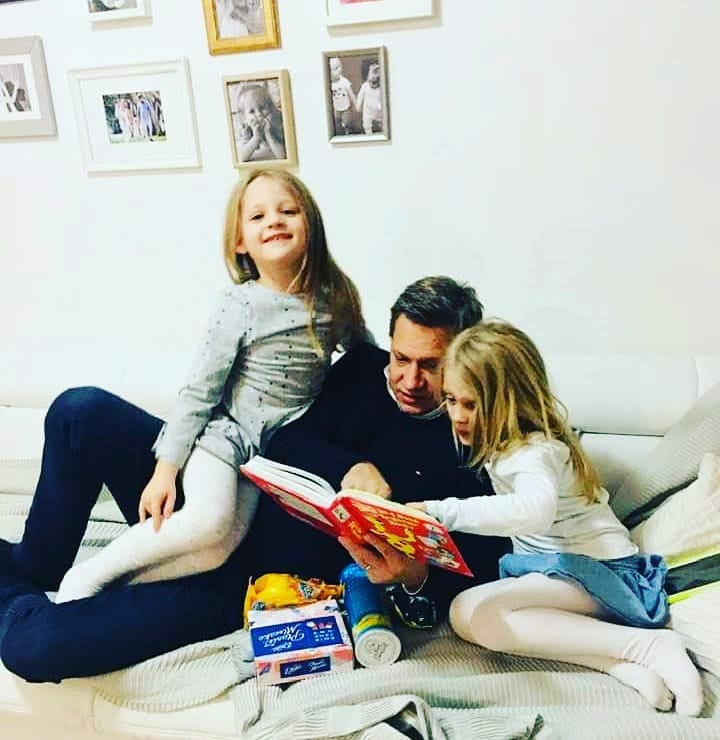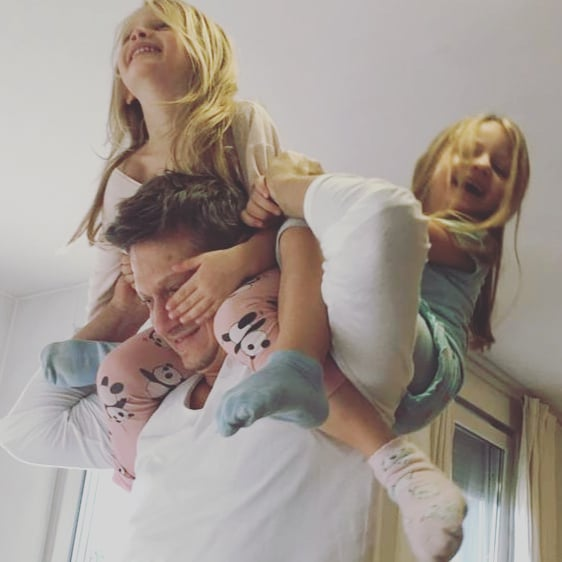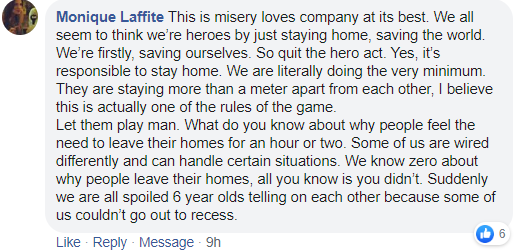Konzum Begins Cooperation With 200 New Small Croatian Producers
Support for Croatian production and domestic producers has always been Konzum's priority, and this is best confirmed by the fact that around eighty percent of the fruit and vegetables sold by the company are of Croatian origin.
As Poslovni Dnevnik writes on the 3rd of April, 2020, at the initiative of the Ministry of Agriculture and Konzum itself, which offered small producers and OPGs Konzum's shelves to sell their products instead of the now closed markets, as many as 200 new small producers came forward and in the very first with of cooperation with Konzum, 70,000 pieces of lettuce, 18,000 kg of chard, 5,000 kg of parsley and 1,300 kg of young onions were purchased. New suppliers have also joined the group of over 4000 farmers and OPGs with whom Konzum is already working.
The heavily frequented store expects that the quantities purchased from small producers will continue to grow further in the coming period. As the season of local strawberries approaches, Konzum is already in contact with producers from all parts of Croatia to make their products available to be sold.
These are the first concrete results of the project on which Konzum embarked based on the decision by the Civil Protection Staff of the Republic of Croatia on a measure to suspend the operation of marketplaces, to make sure people are still able to buy those same products they'd usually buy at markets, but in Konzum instead.
Within the Fortenova group, placement through Konzum is being handled through PIK Vinkovci, a distributor that purchases products from small agricultural producers, provided they meet the highest quality standards. Therefore, all small farms in Croatia interested in marketing their production to Konzum should contact PIK Vinkovci via this email address: This email address is being protected from spambots. You need JavaScript enabled to view it..
PIK Vinkovci is a specialist in the purchase of fruit and vegetables, since they buy more than 20,000 tons of fruit and vegetables per year and have an extremely good level of cooperation with more than 500 subcontractors. Croatian farmers can also contact Konzum's Marinad and Fragaria partners, who also buy and deliver to Konzum, with the highest quality standards guaranteed.
"In this way, we want to increase that number of 4,000 producers from all parts of Croatia that we partner with, and at the same time help primarily small family farmers and farms that are prevented from selling their products due to the closure of the markets. We'll continue to be a strong partner in domestic agriculture, helping to further strengthen it, and constantly look for new models to continue our mission of preserving the tradition of local production and increasing the number of small producers, and providing them with the quality marketing of their products through a wide sales network,'' said Zoran Mitreski, a member of Konzum's administration.
Fruit and vegetable growers who applied to the company's "Best from Croatia" (Najbolje iz Hrvatske) tender after they have agreed to cooperate with the aforementioned distributors may also be included in this initiative.
Make sure to follow our business page for more. For rolling information and updates on coronavirus in Croatia, stay up to date with our dedicated section.
Foreigners Self-Isolating in Croatia: Do You Feel Safer? Eugene from Australia in Zagreb
April 3, 2020 - Do foreigners in Croatia feel more or less safe sitting out COVID-19 here than in their home country, and what are their experiences? A new series on TCN, with Eugene Brcic Jones from Australia in Zagreb as our 18th contributor.
Oxford University recently published some research on government responses to coronavirus which showed that Croatia currently has the strictest measures in the world. While inconvenient, this is a good thing in terms of reducing the spread of the virus, and I am certainly not alone in my admiration of the official Croatian handling of this crisis in recent weeks, both in terms of action and communication.
But what do other expats here think? And how does it compare with the response in their home country? Would they rather sit this one out here or there? In the first of a new series on TCN, we will be featuring expats from all over the world to see what their views are on life in corona Croatia rather than back home. So far we have heard from expats in Croatia from Romania, USA, Ireland, UK, Mexico, Argentina, Spain, Singapore, Holland, Canada, India, Hong Kong and Germany. Next up, Eugene Brcic Jones from Australia in Zagreb. I wonder how much toilet paper he has stockpiled.
If you would like to contribute to this series, full details are below. Now, over to Eugene.
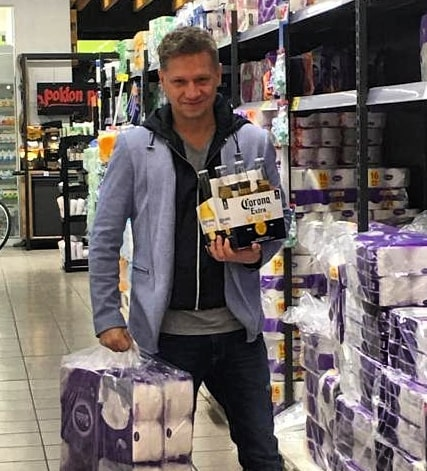
Firstly, how are you? Are you alone/with someone? Tell us a little about your situation and sanity levels.
I’m fine, the hole I’ve been meticulously digging under the building to freedom is nearly done, so my spirits are high. Seriously though, I’m a firm believer that adaptation is one of the most important abilities in this day and age, so I think I’m doing better than most. I’m in Zagreb, in an apartment with my Australian wife Michelle and two kids Eden (6) and Emerson (5). We came to Croatia almost three years ago. My parents came to Croatia from Australia in 1991. They are also in Zagreb momentarily, spending a lot of their time between Zagreb, Zadar and Sydney.
The earthquake did not help our fragile sanity, but it did hammer home the seriousness of the situation, which is surreal and taxing on the mind.
On the whole, I think this crisis will be handled much easier by people who have already started to adapt from old industries to the new digital era, particularly digital natives. As I am a consultant, I’ve had many dry spells, where work was sparse and I would be rendered to solitude at home. I’m no stranger to working from home. My family is also used to being together, rolling around the living room, in each others’ faces for days, just chilling. We travel a lot and are squeezed into hotel rooms. It’s not unusual for us to ditch doing some sight-seeing just to hang lazy in the room, ordering in like sloths.
Accepting change, turbulence in work, is probably more natural for us now, so I think we are doing well under the circumstances. Ask us in a few more weeks, when we start gnawing at furniture and smashing our heads to the wall.
What do you think about the economic measures the government is taking, are they helping your business?
The economic measures are a dud. The government should have acted promptly and properly the first time, but it botched up the job both times. The measures are selective and will be abused by cronies. For example, a company doing well is expected to be increasing profits year on year, it’s these companies that actually pay a lot of taxes and fund the government. Those companies are already likely to have implemented emergency strategies to offset the crisis, they might not even lose revenues, let alone 20% or more than 50%. You cannot punish good or great companies by only funding those who are struggling. There’s no room for sentimentality in economics, you need to stimulate the economy to drive through this tragedy, so it makes sense to throw money into all businesses without discrimination. The strong will make better use of funds, the weak will eventually fail. Hopefully, businesses will pivot to the new realities and new businesses will emerge out of the foliage.
The government was also presented with a golden opportunity to cut off a giant pre-existing tumor, the bloated public sector. This cancer will ruin us if the coronavirus doesn’t get us first. It’s downright idiocy and perversion to ignore this massive time bomb of a problem.
When did you realise that corona was going to be a big issue?
I was travelling a lot before the virus went mainstream, so I was following it on international airwaves. In Croatia, I started reading experts very early, Igor Rudan and the like. But as the problem grew, I started digging deeper into what global experts were saying and extrapolating the possible economic ramifications, which have remained in the backdrop, like a giant lurking elephant.
Now I’m in the phase of indulging conspiracies. It’s entertaining and gets the mind racing. I also don’t want to be the last guy to pack my shit for the Galactica flight to another planet. I’m finding the 5G debate interesting and David Icke and Al Jones just may be onto something. I’m not sure how it all relates to 9/11, the moon-landing and JFK, but I can see a tenuous line is forming.
What is your impression of the way Croatia is dealing with the crisis? How safe do you feel?
Croatia is obviously among the most successful countries in its approach to COVID-19. The measures were timely and strict. We started early and the results are impressive on a global scale. The measures are repressive but they are effective.
I feel safe, almost too safe. The more I see the percentages and ratios, the more it feels our freedoms have been quashed for shreds of security. At the end of the day, in all our frantic fervor and zeal, we may have killed the cow for a few pieces of steak.
When people’s funds start to dry up and they have no more jobs to return to when it all blows over, things could get really desperate. But then, Croatia has lived through worse, maybe the government is placing faith in the amazing resilience of the people.
Now compare that to your home country and how they are handling it. What is Croatia doing better/worse?
Australia is an island, so it has advantages over Croatia. It seems Australia has dragged its feet in terms of self-isolation and it still has not shut down like Croatia. On the other hand, Australia is leading the way again in economic measures with a whopping $130 billion package. Australia was perhaps the only Western economy to ride the 2008 crisis as it bought its way out with giant stimulus packages.
I’m afraid this difference will be a giant boomerang that will smack Croatia in the face. You can’t just shut down a country and close your eyes to the economic fallout. And then, roll out a flawed rescue package. They will have to pay the piper, especially with tourism providing 20% of GDP.
As long as Australia grabs reins of the crisis soon, because rich countries are not used to hardship or uncertainty. It’s much easier for a wealthy country to slide into chaos then it is for Croatia, as our tolerance and fear/panic threshold is soo much higher.
The average Australian is also heavily leveraged, everybody is in debt. If people start losing jobs en-masse, all hell could break loose with a minor trigger. The situation is probably more precarious than it seems.
What about official communications from the authorities, compared to your home country?
Communication is great. They have a polished team and it’s to be expected given Croatia’s experience with war and emergencies. I think Australia was a bit fuzzy, but the government stepped in with the financial panacea and dispelled fear and panic. It opened the communication channels, allowing for gradual suppressive measures against COVID-19.
What's the one thing you wish you had taken with you into self-isolation?
Nothing. I wish I got away to Zadar if this thing spills over into summer, which it is increasingly likely to do. I could relax, go to the beach with the kids. Fortunately, you can swim anywhere on the Adriatic, so keeping away from other swimmers should not be a problem in Croatia.
One thing you have learned about yourself, and one thing you have learned about others during this crisis.
I was in Croatia during the entire war, from start to finish, so I can draw lots of parallels. In these times you will witness how people deal with trauma, the different coping mechanisms people rely on to get them through.
Right now, I am rolling on the floor with the memes swapped around on social media, particularly on Whatsapp with mates.
People are far more resilient than they know, humans can adapt to anything.
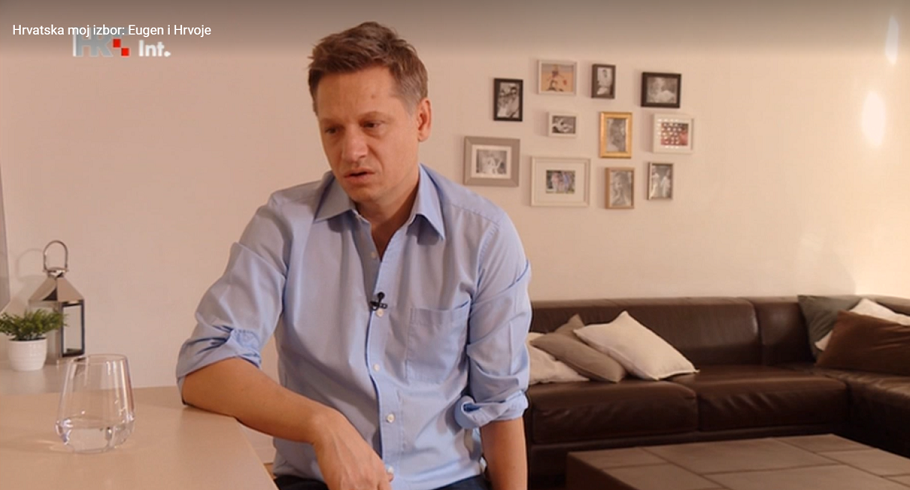
Thanks, Eugene, stay safe and see you on the other side.
TCN is starting a new feature series on foreign experiences of sitting out covid-19 here in Croatia compared to their home country. If you would like to contribute, the questions are below. Please also include a para about yourself and where you are from, and a link to your website if you would like. Please also send 3-4 photos minimum to This email address is being protected from spambots. You need JavaScript enabled to view it. Subject Corona Foreigner
If you would be interested to record a video version for our partners www.rplus.video please let us know in the email. Thanks and stay safe.
Foreigners Self-Isolating in Croatia: Do You Feel Safer Than in Your Home Country?
Firstly, how are you? Are you alone/with someone? Tell us a little about your situation and sanity levels.
What do you think about the economic measures the government is taking, are they helping your business? (PLEASE IGNORE IF THIS DOES NOT AFFECT YOU)
When did you realise that corona was going to be a big issue?
What is your impression of the way Croatia is dealing with the crisis? How safe do you feel?
Now compare that to your home country and how they are handling it. What is Croatia doing better/worse?
What about official communications from the authorities, compared to your home country?
What's the one thing you wish you had taken with you into self-isolation.
One thing you have learned about yourself, and one thing you have learned about others during this crisis.
TCN has recently become a partner in Robert Tomic Zuber's new R+ video channel, initially telling stories about corona experiences. You can see the first TCN contribution from this morning, my video from Jelsa talking about the realities of running a news portal in the corona era below. If you would like to also submit a video interview, please find Robert's guidelines below
VIDEO RECORDING GUIDE
The video footage should be recorded so that the cell phone is turned horizontally (landscape mode).
There are several rules for television and video news:- length is not a virtue- a picture speaks more than a thousand words
In short, this would mean that your story should not last more than 90 seconds and that everything you say in the report should be shown by video (for example, if you talk about empty streets, we should see those empty streets, etc.).
How to do it with your cell phone? First, use a selfie camera to record yourself telling your story for about a minute and a half. Ideally, it would be taken in the exterior, except in situations where you are reporting on things in the interior (quarantine, hospital, self-isolation, etc.). Also, when shooting, move freely, make sure everything is not static.
After you have recorded your report, you should capture footage that will tell your story with a picture, such as an earlier example with empty streets.
One of the basic rules of TV journalism is that the story is told in the same way as a journalist with his text. Therefore, we ask you for additional effort. Because we work in a very specific situation, sometimes you may not be able to capture footage for each sentence of the report. In this case, record the details on the streets: people walking, the main features of the city where you live, inscriptions on the windows related to the virus, etc.
The same rules apply if you are shooting a story from your apartment, self-isolation, quarantine. We also need you to capture footage that describes your story.
When shooting frames to cover your reports, it is important that you change the angle of the shot (in other words, shoot that empty street from several angles). Also, when shooting a detail, count at least five seconds before removing the camera to another detail.
The material should be about 5 minutes long (90 seconds of your report + frames to cover your story).
After recording everything, send us to Zagreb, preferably via WeTransfer to This email address is being protected from spambots. You need JavaScript enabled to view it.
Split Police Warns Citizens: No Picigin, Riva and Popular Beaches Monitored
April 3, 2020 - Even with the warm weather this weekend, citizens should not be tempted to ignore the measures of the National Civil Protection Headquarters. A message from the Split Police.
“Given that sunny and warmer weather is announced for the weekend, we would like to draw our attention once again to Decision on strict restraint on streets and other public places. This Decision applies to streets, squares, waterfronts, parks and all other public areas where a large number of persons can move and gather,” began today's statement by the Split-Dalmatia Police Directorate, in which they urge citizens to abide by the rules, reports Slobodna Dalmacija.
“We know that Znjan, Bacvice and the Split waterfront are favorite places for citizens to gather, but in this situation, you cannot stay in these public areas. Especially not in large numbers because then you are not able to adhere to the rules on the distance between people.
Given the current situation, to prevent the spread of the infection, adjust your habits and exercise your leisure and outdoor activities in a shorter time, in places that you know are not visited by a large number of people. If you want to go outside, go to places where you are sure that more citizens will not gather.
We know that you follow the recommendations of doctors and epidemiologists, and we just want to remind you of their advice that when you are outdoors, keep the recommended distance. In this way, we will positively all contribute to reducing the spread of the infection.
Police officers supervise and implement the measures of the Headquarters daily, including these Decisions on the measure of strict restraint on streets and other public places, and will continue to do so throughout the weekend. Please follow the advice and warnings of police officers on the ground.
We thank all citizens who respect the Decisions of the Civil Protection Headquarters of the Republic of Croatia. With responsible behavior, they protect themselves and all of us,” the police bulletin says.
The police also responded to a request from a Dalmatinski Portal journalist about playing picigin at Bacvice.
“Such behavior is contrary to the decision of the National Headquarters. Had police officers been there, they would have certainly warned the participants to disperse. You can walk, but picigin cannot be played under these circumstances,” Split police said.
Follow TCN's live updates on the coronavirus crisis in Croatia
Foreigners Self-Isolating in Croatia: Do You Feel Safer? Valeria from Hong Kong in Split
April 3, 2020 - Do foreigners in Croatia feel more or less safe sitting out COVID-19 here than in their home country, and what are their experiences? A new series on TCN, with Valeria Teo from Hong Kong in Split as our 17th contributor.
Oxford University recently published some research on government responses to coronavirus which showed that Croatia currently has the strictest measures in the world. While inconvenient, this is a good thing in terms of reducing the spread of the virus, and I am certainly not alone in my admiration of the official Croatian handling of this crisis in recent weeks, both in terms of action and communication.
But what do other expats here think? And how does it compare with the response in their home country? Would they rather sit this one out here or there? In the first of a new series on TCN, we will be featuring expats from all over the world to see what their views are on life in corona Croatia rather than back home. So far we have heard from expats in Croatia from Romania, USA, Ireland, UK, Mexico, Argentina, Spain, Singapore, Holland, Canada, India and Germany. Next up, Valeria Teo from Hong Kong in Split.
If you would like to contribute to this series, full details are below. Now, over to Valeria.
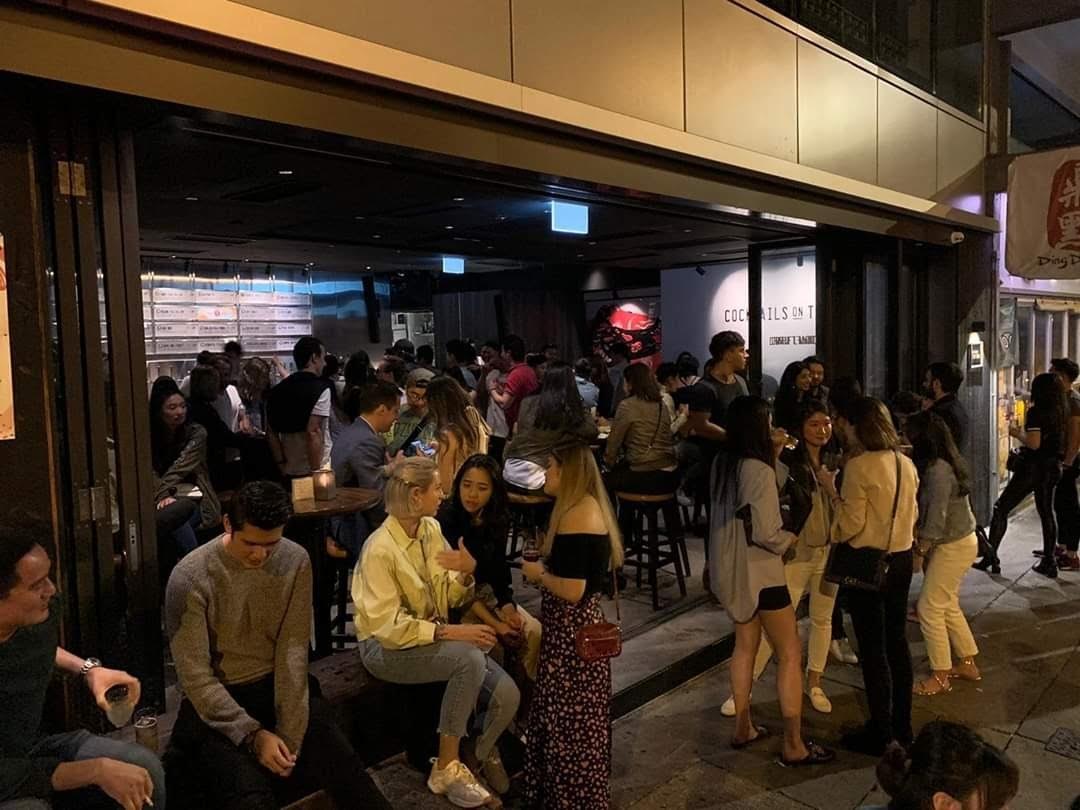
(The most popular hang out place for expatriates in Hong Kong a week or so before all bars in Hong Kong were forced to close.)
Firstly, how are you? Are you alone/with someone? Tell us a little about your situation and sanity levels.
Having previous experience with SARS in 2003 in Hong Kong helps me enormously in this pandemic even though the situation is a lot worse than last time. I have no problem at all with self isolation. When I was writing my books, I locked myself up for months each time. But it is a whole new experience for the two Croatians who are trapped with me. I let the older one do all the grocery shopping to keep his sanity and mine. The younger one, aged 8, misses his school friends and the play time with them. I have no choice but to spill some bold truths about the coronavirus. I feel triumphant when he wants to keep me safe by staying home willingly. But my nerves are still under constant test when his homework shows up in the inbox every day. Having a dad who understands the language but is not that academically savvy plus a mum who grasps schoolwork but is not that lingually fluent, my boy loses it from time to time as well. But we always get through the day after some typical Dalmatian swearing. Thank God, there is so far no harm nor damage.
What do you think about the economic measures the government is taking, are they helping your business?
I have not really looked into that, to be honest. Late March or early April is usually the time I get out of my hibernation to take care of guests in the apartments. Our neighbourhood is so quiet that we can sometimes hear the other apartment owners whine about the lost pre-season. Luckily, I have more operating expenses than fixed ones. But I do understand that it hits many people badly. A responsible government should really help weather the storm. I am glad that the Croatian government is doing that.
When did you realise that corona was going to be a big issue?
I knew that it was something serious as soon as it got worse in early January in Wuhan. I read news and received tonnes of messages from Hong Kong. There were reports about the virus in December. When the Chinese government said that it was not serious, people in Hong Kong smelt something fishy. When Wuhan was locked down on January 23, I was thinking that SARS 2.0 was on the way.
Although I thought that most European countries were not well prepared in late January or early February, I did not expect that it would be that bad in Europe. When the infection numbers in Italy surged in a couple of days after February 19 and new cases started popping up all over Europe, I realized that all hell had broken loose.
What is your impression of the way Croatia is dealing with the crisis? How safe do you feel?
The outbreak in Italy obviously alerted the Croatian government. The disaster in Italy started with one unchecked infected person. Croatia cannot afford the same slip. I am pretty impressed with how the Croatian government is dealing with the crisis so far. When people have no experience in pandemic or infection control, I do believe that governments at all levels have to do more to prevent the spread in the community. The shops have also adapted quickly to unprecedented hygienic measures. It is easier to maintain social distance in Split (than in Hong Kong). All in all, I feel safe here. The only wish I have is that Croatia increases testing sooner rather than later. I do believe that there are asymptomatic carriers everywhere in Croatia, Europe, Asia and Americas. Extensive testing and wearing masks are unavoidable if we want to return to any normality.
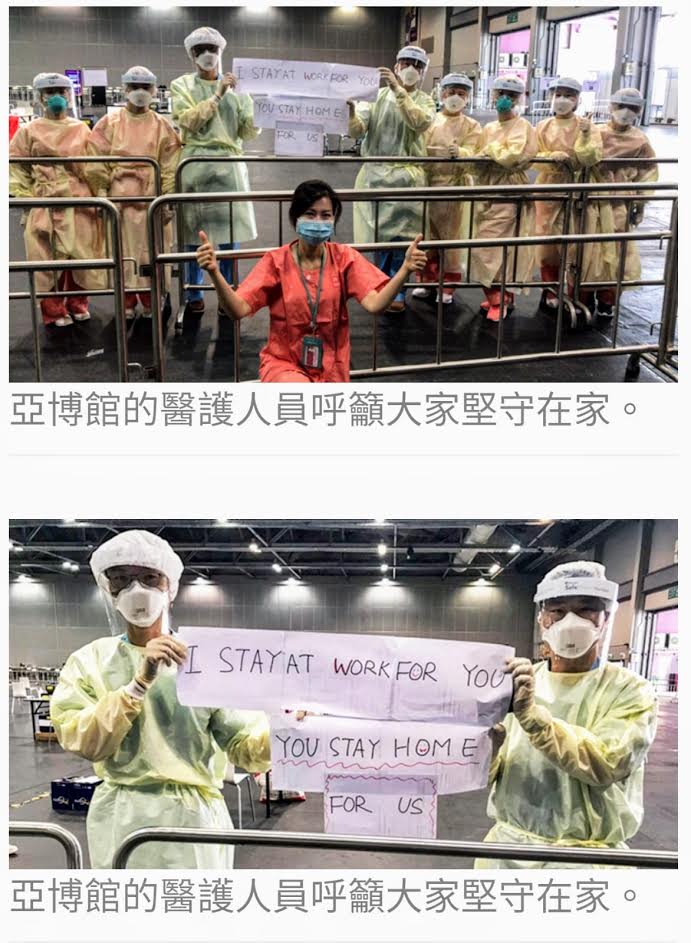
(Hong Kong medical workers working at a temporary screening centre next to the airport.)
Now compare that to your home country and how they are handling it. What is Croatia doing better/worse?
SARS was a total nightmare and a painful lesson for people in Hong Kong. Hospitals were collapsed and 299 people died even though the number of confirmed cases was "merely" 1755 persons over a 4-month period. Therefore, epidemiologists and the citizens were io full alert this time even though the Hong Kong government was (and still is) slow in action every step of the way. People resumed all the hygienic and disinfection practices on both personal and community levels to protect themselves and each other. Most importantly, a large number of Hong Kong people do not believe what WHO says nor follow what WHO recommends. When people know how the last and current Director-General were installed, it is the only sensible thing to do. Hong Kong has its own top epidemiologists and medical experts with experience in combating such an epidemic. So the people, instead of the government, are leading the fight.
The Croatian government is actually doing much better and more than the Hong Kong government (who has some other political agenda than simply fighting this epidemic). The Croatian Health Minister has done what needs to be done so far. It is really important to have a leader who knows what he is doing in such an ever-evolving emergency. It instills confidence in times of great uncertainty.
The general public in Croatia has some catching up to do though. But I do not want to be too judgmental. I still maintain that the Chinese Communist Party regime and its puppet, WHO, should bear the major responsibility in the present mess.
A bigger surprise for me is the number of medical professionals who got infected. According to the numbers released by the Splitsko-dalmatinski zupanija on April 2, 25% of the 148 confirmed cases are medical workers. Community infection kicks off quickly once the virus gets to medical workers in the hospitals. It happened in Hong Kong in 2003. And Italy is the latest victim. History indeed repeats itself. With this year's experience, everybody should hopefully be better prepared next time. And yes, I do believe that there will be a next time.
What about official communications from the authorities, compared to your home country?
Both Croatia and Hong Kong hold daily press conferences to give the latest figures and updates. The official website for the coronavirus in Croatia also helps a lot. I do not use the Viber message. There are already too many WhatsApp messages from various friends' groups. But I'd like the Croatian officials to disclose sources of infection again. Stories of patients being stigmatized are difficult to read.
What's the one thing you wish you had taken with you into self-isolation?
I do not think that we are lacking anything despite the lockdown. Living near the city centre of Split helps a lot.
One thing you have learned about yourself, and one thing you have learned about others during this crisis.
Getting older helps me go through this pandemic with peace of mind. I worried a lot more about the infection, job prospects, financial and economic aftermath 17 years ago. It is not that easy as I am the worrying type.
As the epidemic is sweeping across the globe, I see the good, the bad and the ugly in different countries in a fairly similar fashion. This minute and inanimate virus shows us true indiscrimination. So human beings can definitely do better.
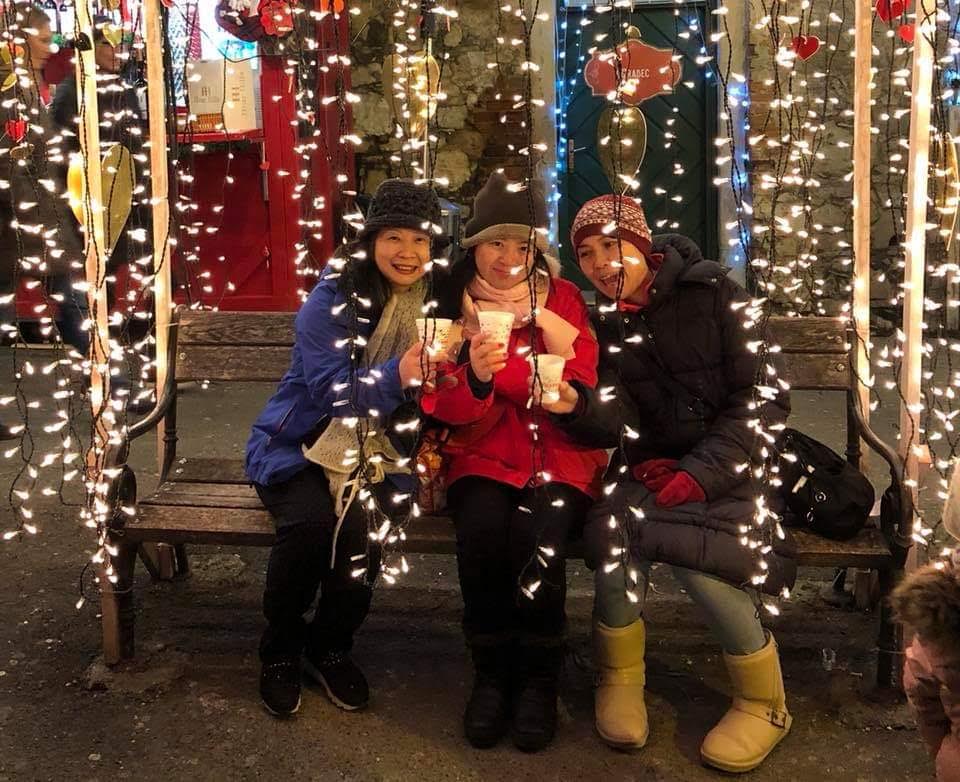
About Valeria Teo:
I left Hong Kong and moved to Split in January 2011 after meeting my husband outside kazaliste in 2007 and getting married in 2008. We have been welcoming guests to our apartments in Radunica since 2014. I also work as a tour leader whenever I feel like having a break from the craziness of being a full-time work at home mother. You may check out and follow our Facebook page.
Thanks, Valeria, stay safe and see you on the other side.
TCN is starting a new feature series on foreign experiences of sitting out covid-19 here in Croatia compared to their home country. If you would like to contribute, the questions are below. Please also include a para about yourself and where you are from, and a link to your website if you would like. Please also send 3-4 photos minimum to This email address is being protected from spambots. You need JavaScript enabled to view it. Subject Corona Foreigner
If you would be interested to record a video version for our partners www.rplus.video please let us know in the email. Thanks and stay safe.
Foreigners Self-Isolating in Croatia: Do You Feel Safer Than in Your Home Country?
Firstly, how are you? Are you alone/with someone? Tell us a little about your situation and sanity levels.
What do you think about the economic measures the government is taking, are they helping your business? (PLEASE IGNORE IF THIS DOES NOT AFFECT YOU)
When did you realise that corona was going to be a big issue?
What is your impression of the way Croatia is dealing with the crisis? How safe do you feel?
Now compare that to your home country and how they are handling it. What is Croatia doing better/worse?
What about official communications from the authorities, compared to your home country?
What's the one thing you wish you had taken with you into self-isolation.
One thing you have learned about yourself, and one thing you have learned about others during this crisis.
TCN has recently become a partner in Robert Tomic Zuber's new R+ video channel, initially telling stories about corona experiences. You can see the first TCN contribution from this morning, my video from Jelsa talking about the realities of running a news portal in the corona era below. If you would like to also submit a video interview, please find Robert's guidelines below
VIDEO RECORDING GUIDE
The video footage should be recorded so that the cell phone is turned horizontally (landscape mode).
There are several rules for television and video news:- length is not a virtue- a picture speaks more than a thousand words
In short, this would mean that your story should not last more than 90 seconds and that everything you say in the report should be shown by video (for example, if you talk about empty streets, we should see those empty streets, etc.).
How to do it with your cell phone? First, use a selfie camera to record yourself telling your story for about a minute and a half. Ideally, it would be taken in the exterior, except in situations where you are reporting on things in the interior (quarantine, hospital, self-isolation, etc.). Also, when shooting, move freely, make sure everything is not static.
After you have recorded your report, you should capture footage that will tell your story with a picture, such as an earlier example with empty streets.
One of the basic rules of TV journalism is that the story is told in the same way as a journalist with his text. Therefore, we ask you for additional effort. Because we work in a very specific situation, sometimes you may not be able to capture footage for each sentence of the report. In this case, record the details on the streets: people walking, the main features of the city where you live, inscriptions on the windows related to the virus, etc.
The same rules apply if you are shooting a story from your apartment, self-isolation, quarantine. We also need you to capture footage that describes your story.
When shooting frames to cover your reports, it is important that you change the angle of the shot (in other words, shoot that empty street from several angles). Also, when shooting a detail, count at least five seconds before removing the camera to another detail.
The material should be about 5 minutes long (90 seconds of your report + frames to cover your story).
After recording everything, send us to Zagreb, preferably via WeTransfer to This email address is being protected from spambots. You need JavaScript enabled to view it.
Jurgen Klopp & Igor Rudan: the Only COVID-19 Opinions You Need
April 3, 2020 - With hundreds of millions of online corona opinions out there, why there are only two you need to pay attention to - Jurgen Klopp and Igor Rudan.
One of the joys of being a writer in the era of social media, online self-entitlement and short attention spans is the fact that many people comment on an article without reading it (this observation is not directly relevant to the topic of this article, before the abusive comments start). It used to really frustrate me, so much so that I posted on Facebook a couple of years ago a simple request to Facebook - could they introduce a feature whereby only people who had opened the link could comment?
It will not happen, of course, and I soon learned a very effective way of dealing with the problem, which I adhere to 99% of the time.
Simply stop reading the comments.
I start the article with this observation because it came back to me last night. Many countries are now under different forms of lockdown, severe restrictions placed on their citizens. Some unnamed foreign owners of news portals in this region are even getting official threats in an effort to control their content. Allegedly. But people are free to express their opinions and insight about corona.
And, boy, are they exercising their right...
From a socioanthropological point of view, watching people spouting forth about corona over these last few weeks has been absolutely fascinating. People with absolutely no scientific credentials whatsoever posturing as online corona experts, many with a range of opinions which I am sure they would come to regret a week later if someone had screenshotted them.
Perhaps someone has...
In this era of control, I mused, what if Facebook had a feature that you had to have some kind of scientific qualification to post an opinion that can, and does, influence others. It would take a ton of garbage, disinformation, and unqualified scientific opinion out of our lives just like that.
It will not happen, of course - those opinions and the keyboard warriors they send into battle keep us addicted to the big social media networks.
Which brings me to the topic of this article - reaction to yesterday's article by me called As Millions of Croats Self-Isolate Responsibly, Split's Sporting Picigin Tradition Continues.
You can see the traditional Split beach game being played yesterday in the Dalmacija Danas video, as well as more information in their article, including the results of their online poll on whether or not this was deemed responsible behaviour at the current time.
Although I almost never read comments these days, friends do alert me when there is an interesting discussion.
And discussion on this article WAS interesting. And very divided.
My opinion on this is not important as I am not a scientist, but the reaction was very polarised, as one might expect. Some struggling with cabin fever in their apartments were outraged, while others could not see the problem, as they were appropriately socially distanced.
Tim Bourcier was kind enough to contribute yesterday to our series, Foreigners Self-Isolating in Croatia: Do You Feel Safer? It is a worthy read if you have time.
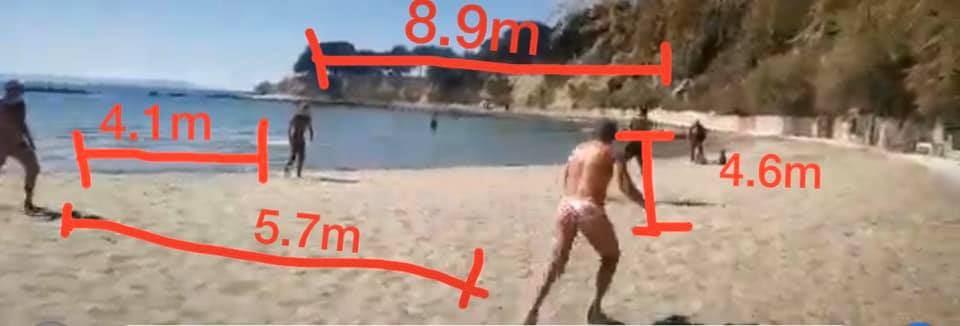
But Tim's response to the picigin article was even worthier, as it has crystallised a REALLY important and confusing topic for many of us.
What is, and what is not, ok? Tim's drawing - you will have to teach me how to do that when all this is over - shows quite correctly that the picigin players are appropriately self-distanced in the video.
Monique Lafitte, saw no problem with this whatsoever - and it should be noted from the post on TCN FB, that there were others who agreed with her. As well as disagreed.
So who is right?
There are only two people whose opinions I follow religiously about COVID-19 - Liverpool coach Jurgen Klopp and eminent Croatian scientist, Igor Rudan, Professor at Edinburgh University.

So I asked both Jurgen Klopp and Igor Rudan what they thought about playing picigin in Split at the current time.
First up, the Liverpool legend:
And no, I didn't really ask Jurgen Klopp what he thought about picigin, but his comments a few weeks ago when asked about corona went viral.
And they remain the very best opinion for non-experts.
I DID, however, ask Igor Rudan, for his opinion.
For those of you who do not know Igor, his texts on corona are easily the best I have read, and TCN editor is busy translating them into English. To get a flavour, this was my favourite so far:
Igor Rudan: Cascade of Causes That Led to COVID-19 Tragedy in Italy and Other EU Countries
(You can read others by Igor on TCN here)
For those with cabin fever looking for something to watch, Igor's series on YouTube - Survival: The Story of Global of Health is the most interesting thing I have watched this year. Trailer below and full series here.
In addition to writing these fabulously instructive texts, Igor is also working closely with the Croatian Government to keep us all safe, but he did have a minute at 5am this morning to give his opinion on the picigin incident, and when I mentioned the Jurgen Klopp angle for this article, this was his reply.
Jurgen Klopp is my absolute favourite person! I said many times that if I wasn't a scientist, I would be a football manager.
Yes, ok, Igor, that is great, but can we concentrate on the science for now...
I am preparing a new article for tomorrow, so I will try to clarify many things about life in quarantine.
Lauren will translate this into English as soon as her schedule allows, and we will publish on TCN and share it immediately.
I asked Igor if he had a one-sentence answer while we wait for what could be his most important text so far. In order to encourage him, I promised to post his photo next to his Liverpool idol. Here is what he said:
I can only say that, if you leave home, you are no longer safe, because we still have no idea how this virus can spread so easily. Until we do, I would rather stay in.
I don't know if Tim or Monique follow my writing or not, but I would like to thank them both for highlighting this issue. It is an issue which urgently needs clarity, and if a global expert such as Igor can provide that clarity AND people adhere to that clear advice, lives will undoubtedly be saved. Thank you both.
The only thing that remains is to speculate on whether or not Igor Rudan will be a Premier League manager next season.
I, for one, would not rule it out.
To follow the latest on coronavirus in Croatia, follow the TCN dedicated section.
Bolt Transforms Taxis to Delivery Service During Corona Era
April 3, 2020 - Every crisis is also an opportunity. Thus, Europe's leading on-demand transportation platform saw its opportunity to introduce a new service - Bolt Delivery.
HRTurizam writes that Bolt launched a new service in Croatia, Bolt Delivery, which is a new delivery service in Zagreb, Split, Rijeka, Osijek, Zadar and Dubrovnik.
Bolt Delivery is ideal for shipments that need to be delivered on the same day, and even within just one hour, such as clothing, books, home supplies, game consoles, documents, and whatever you need to send.
Shipments should be lighter than 20 kg and within the given dimensions up to a maximum of 65x55x40 cm. For security, the service will be available only to those who have a valid bank card in their application because cash payment will not be possible. The minimum delivery cost is 20 kuna for all cities.
“On the one hand, we will take advantage of existing technology and a large network of Bolt drivers across Croatia and enable users to stay safe inside their home, at a time when the majority of the population is forced to do so. And on the other hand, we launched the Bolt Delivery service to provide our drivers with the best support, safe work, and an opportunity to generate revenue with their experience and efficiency in business and logistics. In addition to this service, we plan to introduce new delivery services that will also help business customers,” said Tomislav Lukačević, Operations Manager at Bolt, Croatia.
"To use the service, change your payment method to in-app payment, select the Delivery ride-type in the Bolt app, give the driver your package and the recipient's phone number. Easy!
You can share the delivery information with the recipient using the Share Trip feature inside the app.
The dimensions of your parcel should fall within 65 x 55 x 40cm. If you need to deliver larger packages, please notify the driver in advance," writes Bolt in its press release.
Using the existing application, the delivery option offers the opportunity for private and business users to send what they need to their friends, family or business colleagues and associates during this time of limited mobility.
To read more about lifestyle in Croatia, follow TCN’s dedicated page.
INA Donates More Than 1.5 Million Kuna to Croatian Health Institutions
As Poslovni Dnevnik writes on the 2nd of April, 2020, aware of the difficult circumstances in which the Croatian health system, institutions and civil society have found themselves in their efforts to curb the spread of coronavirus, which has been further aggravated by a strong earthquake hitting Zagreb, INA wants to facilitate the procurement of materials and equipment and help to repair the damage.
INA has been investing in improving the health care system in Croatia for many years now, and following the utterly unprecedented situation in which we're all now in - facing two extraordinary circumstances - a coronavirus pandemic and the aftermath of a severe earthquake in Zagreb, the company feels even more responsibility to provide assistance.
In order to help the extraordinary efforts of health professionals, INA donated a massive 250,000 kuna each to the Dr. Fran Mihaljević Clinic for Infectious Diseases and the Primorje-Gorski Kotar County Health Centre, and the Sisak General Hospital (Dr Ivo Pedisic) and the Croatian Red Cross were donated 100,000 kuna each.
The Special Hospital for Chronic Pediatric Diseases in Gornja Bistra and the Croatian Institute for Emergency Medicine were also donated 50,000 kuna each by INA. These huge donations will be used to procure protective equipment, medical supplies, disinfection devices and supplies, and medical equipment and devices needed to care for patients and to facilitate the organisation of emergency services.
The Rebro Pediatric Oncology Foundation was donated 200,000 kuna for the construction and equipping of their pediatric hematology and oncology departments, and 100,000 kuna was donated for the Pediatric Department at the Pula General Hospital. On top of all of that, INA donated a further 50,000 kuna to the Kamensko Association, which sews cotton masks for the Association of the Blind, DVD Selce, homeless people, users of soup kitchens and homes for the elderly and infirm, while the Ruđer Bošković Technical School from Vinkovci was donated 10,000 kuna to make visors on 3D printers that the school will then donate to Croatian hospitals.
To help repair the damage caused by the recent Zagreb earthquake, INA donated an additional 250,000 kuna to the Together for Zagreb campaign and another 100,000 kuna to the Zagreb Children's Diseases Clinic.
"The circumstances we're facing are truly unprecedented. This is the moment when we all need to come together, because only by working together can we overcome the challenges we're face these days. INA has been continuously supporting the Croatian healthcare system for many years through numerous donations to hospitals. We're now back once again side by side with our health care system and with all those who can help prevent the spread of the coronavirus pandemic and repair the effects of the Zagreb earthquake. As always, we want to help those who need it the most, join them, support them and thank them for everything they do,'' said INA's CEO Sándor Fasimon.
INA also helped supply the Civil Protection Headquarters of the Republic of Croatia by donating 720 liters of INA Denizol, a new product that INA LUBRICANTS began producing last week. For their utterly exceptional dedication to their life saving work, INA would like to thank all health professionals and is offering them free coffee at selected retail locations within the "Coffee for Heroes" campaign.
INA is also helping things run smoothly in the business sense during this difficult situation by ensuring the smooth supply of fuel to the Croatian market. By following all instructions and measures to combat the spread of coronavirus, business continuity has been ensured.
For rolling information and updates on coronavirus in Croatia, follow our dedicated section.
Amway Donates Makes Generous Donation to Croatian Red Cross
One amazing thing the ongoing coronavirus epidemic is doing is bringing out all of the big hearts across the world out of the woodwork, and from places you wouldn't have imagined. Many companies have made generous donations to health institutions, associations and hospitals across Croatia, and Amway is yet another to show it cares about the incredible crisis the country and the rest of the world now finds itself in - by donating to the Croatian Red Cross.
As Poslovni Dnevnik writes on the 2nd of April, 2020, Amway, which operates across almost seventy markets worldwide, has laid the foundation for the fight against the coronavirus outbreak, with a total donation of 110,000 US dollars.
On top of that, a generous donation to the Croatian Red Cross of 2.5 thousand euros is foreseen for the Republic of Croatia in its fight against the spread of COVID-19. The funds will be used for activities to prevent the spread of the virus and to eliminate the increasingly negative effects of the epidemic.
Under the slogan ''Together we can! Amway to fight the COVID-19 virus,'' Amway will support local communities in the countries where it operates located across Europe and down in South Africa.
The COVID-19 virus pandemic has engaged the entire world in the fight against its spread, with as many people as possible making themselves available to help doctors, nurses, scientists and epidemiologists around the world battling to put a stop to its exponential spread. Many citizens have already made their contribution to research and healthcare. Amway has made it clear that it wants to help overcome this global health crisis with its donations.
In addition to the aforementioned donation, Amway Croatia has invited all of its registered users to join in their initiative and contribute themselves. You can donate 7.50 US dollars to the Amway Portal to help fight the COVID-19 virus together, and you're free to opt in to the campaign by April the 20th, 2020.
Follow our dedicated section for rolling information and updates on coronavirus in Croatia.
Kamensko Association: Donating Masks and Saving Jobs
As Sasa Paparella/Poslovni Dnevnik writes on the 2nd of April, 2020, the Kamensko Association has been engaged in sewing cotton masks for the Association of the Blind, fire departments, nursing homes and more, and as we reported today, INA has very generously donated 50,000 kuna to them.
The former workers of Kamensko, who founded the association after the demise of the Zagreb textile factory and became been self-employed, have been sewing cotton masks since the outbreak of the coronavirus pandemic, which they then mostly donate to needy fellow citizens, and also send some to various clients.
"We're worried about all those vulnerable groups of people that society has forgotten, because we know very well how it is for them. We can produce 500 masks a day - our girls need the seams as well, as needed, so the masks aren't really a problem. We also gave some of the masks to the residents of the retirement home who, when it was most difficult for us, bought us a small sewing machine with their own money, so now we're giving something back to them,'' says Đurđa Grozaj, president of the Kamensko Association.
The association is also arranging some bigger jobs, and have sewed 1000 masks for the Rijeka student centre, Metro ordered 3000 pieces from them, and masks are also sewn for pension institutions in Koprivnica and down in Dubrovnik.
There are, however, some new problems, such as postage costs of as much as 79 kuna, which is charged by the Croatian Post for the transportation of three masks. This week alone, the Kamensko Association received an intercontinental order from Croatian expatriates from across the Atlantic in New York.
The Kamensko Association has also been hit by the downturn in the economy due to coronavirus and even tourism problems, as they have now lost the job of sewing linen bags for hotels on Croatian islands.
“You know, we're working very hard to preserve these five jobs of our seamstresses, to whom we pay salaries. So far, the salaries for the two seamstresses have been compensated every month by Ikea, as they sewed for them.
However, Ikea is now closed, so their fate has become uncertain. The only safe wages for now are the funds coming to us through a project funded over the next three years by the National Foundation for Civil Society Development. I don't know what to do next, and the hardest thing for me to do would be to have to let someone go.
We also have a single mother working here. We never received the arrears we were promised from Kamensko's bankruptcy. I think we deserve a chance after everything we've all been through. I urge that it be invested in us, and not in imports from China. Give us a chance to work,'' said Đurđa Grozaj.
As stated, the Kamensko Association has received a nice donation from INA, which will certainly help patch up some of the financial struggles the association has been dealing with amid the economic crisis caused by the coronavirus pandemic.
Make sure to follow our dedicated section for rolling information and updates on coronavirus in Croatia.
Toilet Paper Culture: an Australian Viewpoint from Croatia
April 3, 2020 - Australian toilet paper culture made global headlines last month, as fights broke out in supermarkets between people hoarding due to coronavirus. A little Australian insight into the whole toilet paper culture from an Aussie in Croatia.
One of the more interesting reads in recent days on TCN has been the new series called Foreigner Self-Isolating in Croatia: Do You Feel Safer? It looks at the experiences from expats living in Croatia from all over the world, and so far there are contributions from Romania, Germany, Spain, USA, Canada, Mexico, Argentina, India, Hong Kong, UK and Ireland. I decided to contribute my thoughts and sent my answers to Paul, which will be online shortly. But he was delighted to hear from me, for I was the first Australian to answer, which meant I had an extra task. This extra task has turned into the article below.
As an Aussie in Croatia, I got the bonus question about toilet paper, and the heavy task of responding on behalf of my fellow citizens on the topic.
To clarify, I am a dual Australian Croatian national. This means I have enough toilet paper - even alcohol - but being in Croatia, now I don’t have any yeast to make donuts and stuff.
The toilet paper thing puzzles me, too. There is no shortage; it’s ‘an artificial famine’. I have read up academic and anecdotal views to try to understand it. This is a culmination of my findings.
I woke up one morning - 4th March - to see a witty friend post this:
“IF YOU WANT TO KNOW WHO YOUR TRUE FRIENDS ARE, ASK THEM IF YOU CAN COME OVER TO TAKE A SH*T”.

I knew it was going to be a good meme day.
A Lebanese-Australian man’s video about “Australians looking like idiots” went viral. And for good reason. His 84-year-old uncle - who carried him as an infant through war zones - called him from Lebanon to check in. In Australia we all know the overseas relatives never call.
This was serious.
Above: A senior in Australia facing empty shelves - no bread. Senior specific hours and “Basics Boxes” are now being offered due to the stockpiling by panic buyers.
Factor 1: The Fires
To be fair, Australia was just coming out of apocalyptic bushfires. May I repeat: A-PO-CA-LYP-TIC. For those who haven’t been to Australia - or even have - if you were to visit one beach a day in Australia, it would take you 27 YEARS to see them all. It’s a big country. There’s a lot of bush (trees) and it was also the peak of summer. So everyone was on one big beach. Not true - that was Bondi after social distancing was announced. Still. It was hot. Cities were covered in smoke from fires for weeks - the smoke even reached other countries. Australia is an island. Think about that. New terms became mainstream on the news: “megablaze” and “ember attack”. Two - you guessed it - mega blazes, eventually merging between the state of Victoria and New South Wales. This is like all of Poland burning through and coming into Dalmatia. No it’s not, but I’m going for effect. It was mega.
People are still sleeping in tents.
My family were among the many stuck for days on holiday coastal towns with red skies, people and horses seeking safety on beaches, roads closed. At times, there was no water supply. Power would go out. A drive which took 2-3 hours took 2-3 times that - if the road didn’t get blocked by falling, flaming trees. Lives, wildlife and livelihoods were lost.
This, clearly, disrupted supply chains and business sectors, particularly tourism. So the panic buying isn’t a total surprise, given the timing. What is surprising is going from the solidarity and care shown around the fires to communities in these burnt out places - to now all-out supermarket brawls.
A sense of fear and lack is looming with COVID19.
Australia has never faced a significant physical threat (natural disasters aside). Toilet paper has become a symbol of control in an uncertain time.
Factor 2: Status, Culture and Control
I could harp on about how relative status is here - but Seth Godin does it better, so I won’t. What needs to be considered is Australia is dubbed The Lucky Country. Anyone - people who don’t even speak the language, can come to Australia and thrive through hard work and fair dinkum-ness. Sure, a lot has changed. The living ain’t cheap. As such, many living standards are high. Toilet paper can be classed as a symbol of this status everyone is working so hard for - if you deprive someone of that, you’re depriving them of their hard work.
Just to note, compared to Europe, nobody - nobody charges you to use a public toilet. It’s just a given - which is what Aussies expect, subconsciously, about the toilet-going experience. Enough toilet paper is thus seen as a ‘right’ vs a privilege.
Toilets are also immortalised in film and song. One of the most popular Australian-made films is ‘Kenny’ - a mockumentary about a plumber guy and the portable toilet industry. And one of the most famous country singers, Slim Dusty, gives an ode to the dunny with his song Redback on the Toilet Seat.
We know going to the loo can be dangerous, but it doesn’t need to be. Toilet paper is part of that safety.
Factor 3: Spiders and Supermarkets.
What is strange is Australia is a country where everything can kill you, and we still walk around barefoot. The sun, the sea (rips), sharks, spiders, snakes - yet we go along our merry way at ease living with these threats. Take our toilet paper away, and we (some) become monsters.
A friend in an affluent suburb reported their small supermarket had plenty of toilet paper. Even in the peak of panic-buying! This could be related to socio-economics and more shoppers at one time in suburban centres. Also, it does take up a lot of room on the shelves, so when it disappears, you notice.
The scenes we’re seeing - of fighting in supermarkets, is, unfortunately, a response to the fear and sense of lack many feel right now.
There is plenty of toilet paper in Australia. It just gets bought up by a certain type of consumer.
The best response I found was chef Adam Liaw who is always articulate and hilarious:
“If you are one of the people who has panic-bought a 6-month supply of toilet paper I think you should go home and look at your enormous pile of toilet paper and think about what you’ve done.
That, and:
Just imagine if, after everything, you finally went out for dinner to a Chinese restaurant and ended up getting coronavirus from Tom bloody Hanks.
I’ll leave it there.

